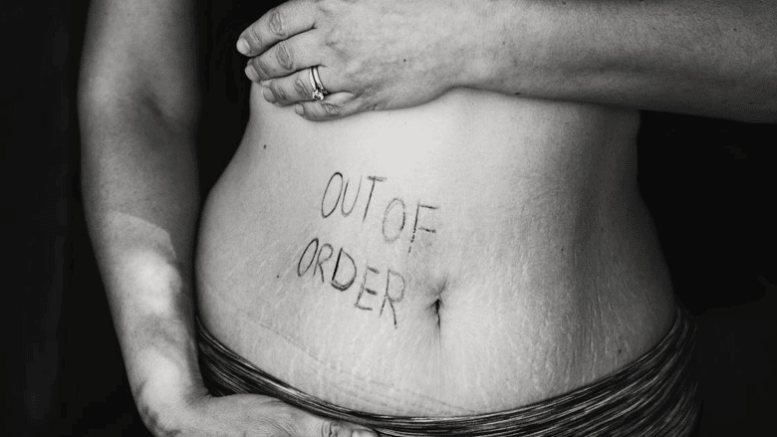Why Does Every Time I Eat My Stomach Hurts – Overview
The stomach is a very sensitive organ. If you eat too much or too little, it will let you know, sometimes painfully.
Almost everyone is guilty of overindulgence whether it was that delicious Christmas dinner or a party. This is often followed by stomach pain due to indigestion.
However, if your stomach aches after eating normal portions, there may be a problem. Many stomach-related issues can be treated at home with simple home remedies or Over-the-Counter drugs.
However, if the pain is moderate or acute, a visit to the doctor is recommended.
Reasons Why You Have Stomach Pains After a Meal
There are several reasons why your stomach may ache after eating. It could be a reaction to the food you have eaten or digestive issues.
Also, it may be a sign of a serious medical condition. If your complaint is “Every time I eat, my stomach hurts,” here are a few reasons why.
1. Indigestion
Indigestion is a common problem in many people the world over. The symptoms are different in different individuals but some common ones include:
- Stomach upset after eating
- Heartburn
- Bloating
- Excess gas
- Nausea
- Ejecting a bitter-tasting fluid or a small amount of food
Treating indigestion brings about stomach pain relief and you can easily do it at home. Here are a few tips to treat indigestion at home:
- Reduce your intake of alcoholic and fizzy beverages as well as caffeine
- Avoid smoking
- Manage your weight to decrease pressure on your belly
- Reduce your intake of fatty and spicy foods
- Sleep in a more tilted position by adding a pillow behind your head and shoulders
Antacids help with heartburn as they relieve that burning sensation giving you instant relief. If these suggestions fail to work, see your doctor.
They will diagnose deeper conditions such as GERD and prescribe the relevant medications. Also, see your doctor if you:
- Are you in severe pain
- Feel a lump in your belly
- Are 55 or older
- Have dysphagia (experiencing difficulty swallowing)
- Are vomiting
- Experience weight loss without trying to lose weight
- Are anemic
- Notice traces of blood in your stool or vomit
2. Gallstones
Health experts estimate that one in ten people have gallstones although some people may not experience symptoms.
These are small stones that form in your gallbladder. Gallstones are mostly harmless unless they get stuck in one of the passageways leading to your bladder.
Then you may experience a sudden onset of stomach pain that may last for about five hours. The pain may get worse after a heavy meal.
Pain medication may help to reduce the symptoms but you may need to see a doctor have the stones removed.
You could also manage the condition by avoiding foods that make it worse. This includes foods that are high in saturated fat.
3. Irritable Bowel Syndrome (IBS)
This is a condition you may have had for quite a while. You experience frequent spells of stomach pain that get worse when you eat. The pain can be severe but often dissipates after passing stool.
More symptoms of Irritable Bowel Syndrome include the following:
- Bloating
- Diarrhea
- Nausea
- Constipation
- Backache
- Fatigue
- Incontinence ( unable to control when you poop)
- Problems when you go for a tinkle
The causes of IBS are as yet unknown but the symptoms are treatable. You may be required to make a few changes to your diet and lifestyle. Also, have your health provider diagnose your symptoms if you suspect you may have IBS. Additionally, see a doctor if you:
- Notice blood oozing from your bottom
- Have diarrhea and there is blood in it
- Have lost a lot of weight without trying to
- Feel a lump or swelling in your stomach area
- Experience shortness of breath and your skin is pale
4. Stomach Ulcers
Ulcers in the stomach present as open sores. They form when that barrier between the stomach lining and stomach acid is broken down. This results in damage to the lining of your stomach.
The pain from a stomach ulcer is located in the upper abdomen. It may be activated or made worse or better after eating.
This largely depends on the location of the ulcer. An ulcer forms due to an infection or taking medications such as aspirin and ibuprofen.
Apart from pain in the upper abdomen, you may experience other symptoms such as:
- Indigestion
- Nausea
- Heartburn
To alleviate your symptoms:
- Avoid trigger foods such as coffee, tomatoes chocolate
- If you have excess weight, shed some
- Eat your dinner 3-4 hours before bedtime
- Reduce alcohol intake
- Avoid smoking
- Eat smaller portions at mealtimes
Avoid nonsteroidal anti-inflammatory drugs (NSAIDs) such as ibuprofen and aspirin if you suspect you have an ulcer. If you must take them under prescription, do so under close observation by your doctor.
Seek medical attention immediately if you notice the following:
- Blood in your vomit
- Poop that is dark in color
- Severe pain in the stomach that gets worse
Conclusion
Some of the causes of stomach pain after eating can be managed at home without medication. However, some may demand medical attention.
If the symptoms are severe and home remedies or OTC drugs are not helping, you should see your doctor.

As a nutritionist, I research, find and experiment with recipes, natural diets and meal plans for weight loss, bodybuilding, and detoxing.
